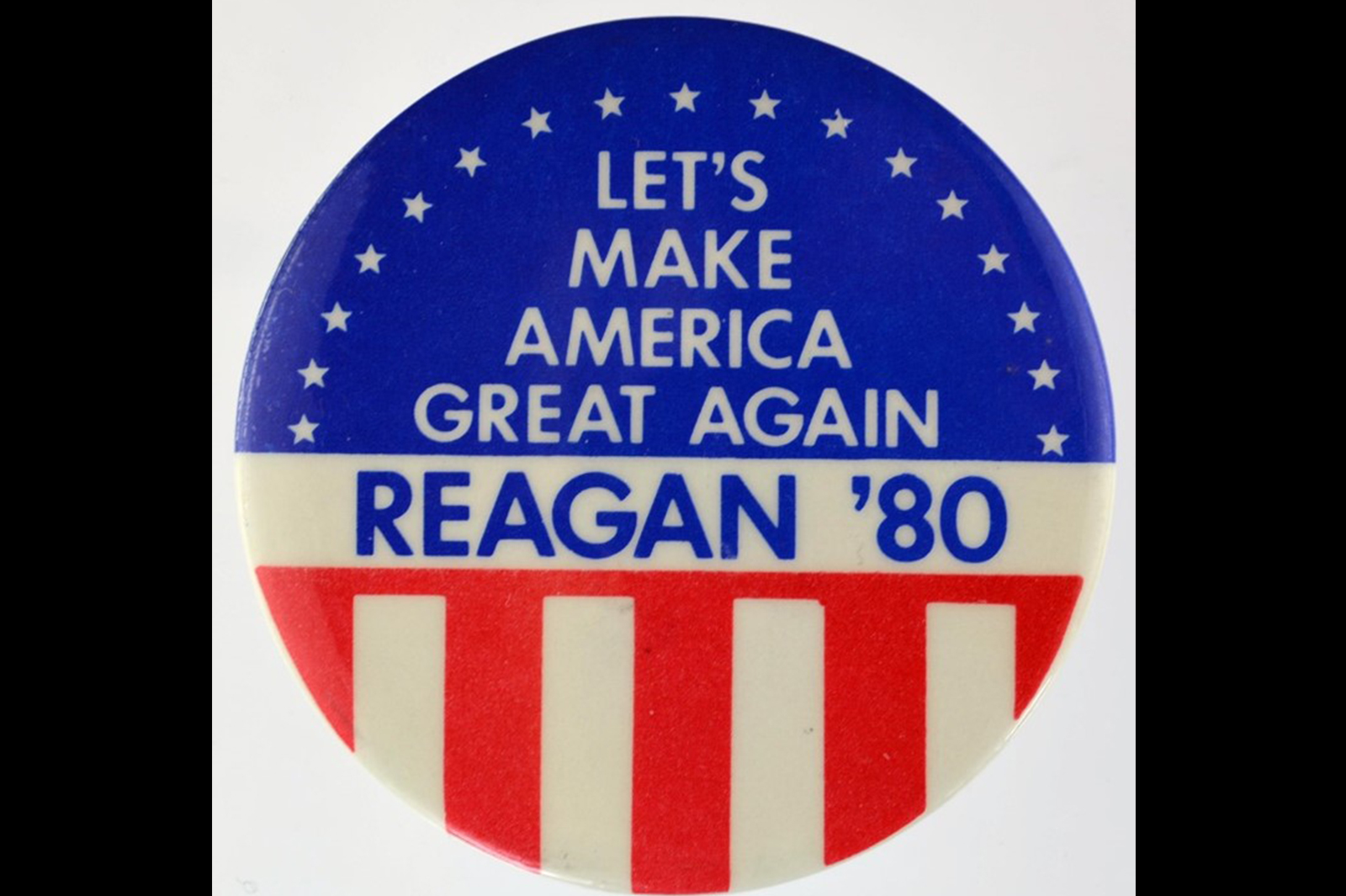Call For Papers: Politicised Nostalgias, A One-Day Workshop
Date 1 February 2024
1.02.2024Participants for a summer workshop at the University of Northampton are invited to present working papers related to political nostalgias from any point in time, from the ancient world to the contemporary moment. While authors such as Routledge et al (2006) have argued that nostalgia may play a vital role in helping human beings come to terms with death, the political implications of this have not been deeply explored.

Friday 5 July 2024, University of Northampton: Politicised Nostalgias Workshop
NEW: Online-only additional day: Friday 12 July
Due to high demand for this conference, we are adding an additional online day the week after the in-person workshop. There are several speakers already confirmed but there is space for a few more: please email an abstract to Rachel.moss@northampton.ac.uk by 31 May. Please note, the in person workshop is full.
Nostalgia, defined most simply as a wistful or sentimental longing for a past period or set of conditions, has played a significant role in the shaping of historical and contemporary political discourses, and it has been particularly associated with right-leaning individuals and groups. However, as Wohl et al (2023) have noted, collective nostalgia is experienced across the political spectrum, though the focus and content of that nostalgia may differ significantly according to political affiliation. Once considered a neurological disorder or depressive illness, nostalgia is increasingly considered by the psychiatric community to be an emotion that plays a significant role in healthy psychological functioning. Sedikides and Wildschut (2023) amongst others have made the case that nostalgia fosters both individual authenticity – a sense of alignment with one’s true self – and also a sense of wider social connectedness and belonging.
Nostalgia can thus play a strong psychological role in strengthening group cohesion and increasing motivation to achieve personal and collective goals; while on the surface this sounds very positive, after even a cursory examination it is obvious that nostalgia can play a much more ambiguous role in the development and maintenance of political ideologies and movements. Nostalgia for a lost past (or a past that has really never been) may spur political actors on to build a better world – but better for whom, and on whose terms? Similarly, while authors such as Routledge et al (2006) have argued that nostalgia may play a vital role in helping human beings come to terms with death, the political implications of this have not been deeply explored. In this theory, nostalgia provides a pool of meaningful life experiences to draw upon when faced with the existential threat posed by awareness of our own mortality. While this has been used to argue that nostalgia could have potentially protective functions against, for instance, radicalisation into ideological self-sacrifice through acts of terrorism (Routledge et al, 2014), there has been limited consideration of the ways collective nostalgia could be used to justify such acts.
At this one-day workshop, participants are invited to present working papers related to political nostalgias from any point in time, from the ancient world to the contemporary moment, and from any part of the world. The aim of the day is less to give polished papers nearly ready for publication and more to use shorter interventions to develop a discursive vocabulary and range of talking points related to nostalgia in historicised political contexts, with the intention of collectively building these into a journal special edition. Abstracts of 150-250 words are thus welcomed for presentations of approximately 10-15 minutes; formats differing from conventional conference papers will be warmly considered. We anticipate that significant portions of the day will be given over to informal discussion arising from the presentations. Please submit your abstract by Friday 5 April 2024.
Possible topics for discussion:
- Nostalgia in online communities (e.g. memes about “the good old days”)
- Nostalgia and gender (e.g. the “tradwives” movement)
- Nostalgia and the extreme right
- Nostalgia and radicalisation to violence
- Nostalgia and critique of the present
- Nostalgic futures
- Nostalgia and temporalities
- Nostalgia and community
- Nostalgia in political campaigning
- Nostalgia in political art and architecture
- Nostalgia and empire
- Nostalgia’s place in left-wing movements
If you have any queries about the workshop, or to submit your abstract, please email rachel.moss@northampton.ac.uk.
References
- Routledge, Clay, Jamie Arndt, Constantine Sedikides, Tim Wildschut. A blast from the past: The terror management function of nostalgia. Journal of Experimental Social Psychology 44 (1), 2008, 132-140.
- Routledge, C., Juhl, J., Abeyta, A., & Roylance, C. (2014). Using the past to promote a peaceful future: Nostalgia proneness mitigates existential threat induced nationalistic self-sacrifice. Social Psychology, 45 (5), 339–346.
- Sedikides, C, Wildschut T. Nostalgia as motivation. Current Opinion in Psychology 49 (2023)
- Wohl, MJA, Stefaniak, S, Smeekes, A. Collective nostalgia as a balm for the distressed social identity. Current Opinion in Psychology 49 (2023).

Rachel is a senior lecturer in medieval history at the University of Northampton. A specialist in late medieval family and gender, she is also currently working with colleagues in modern and contemporary history on the use of medievalism by the extreme right. She organises the University's Gender Research Group and is the current holder of the University's Award for Pedagogical Innovation (2023).